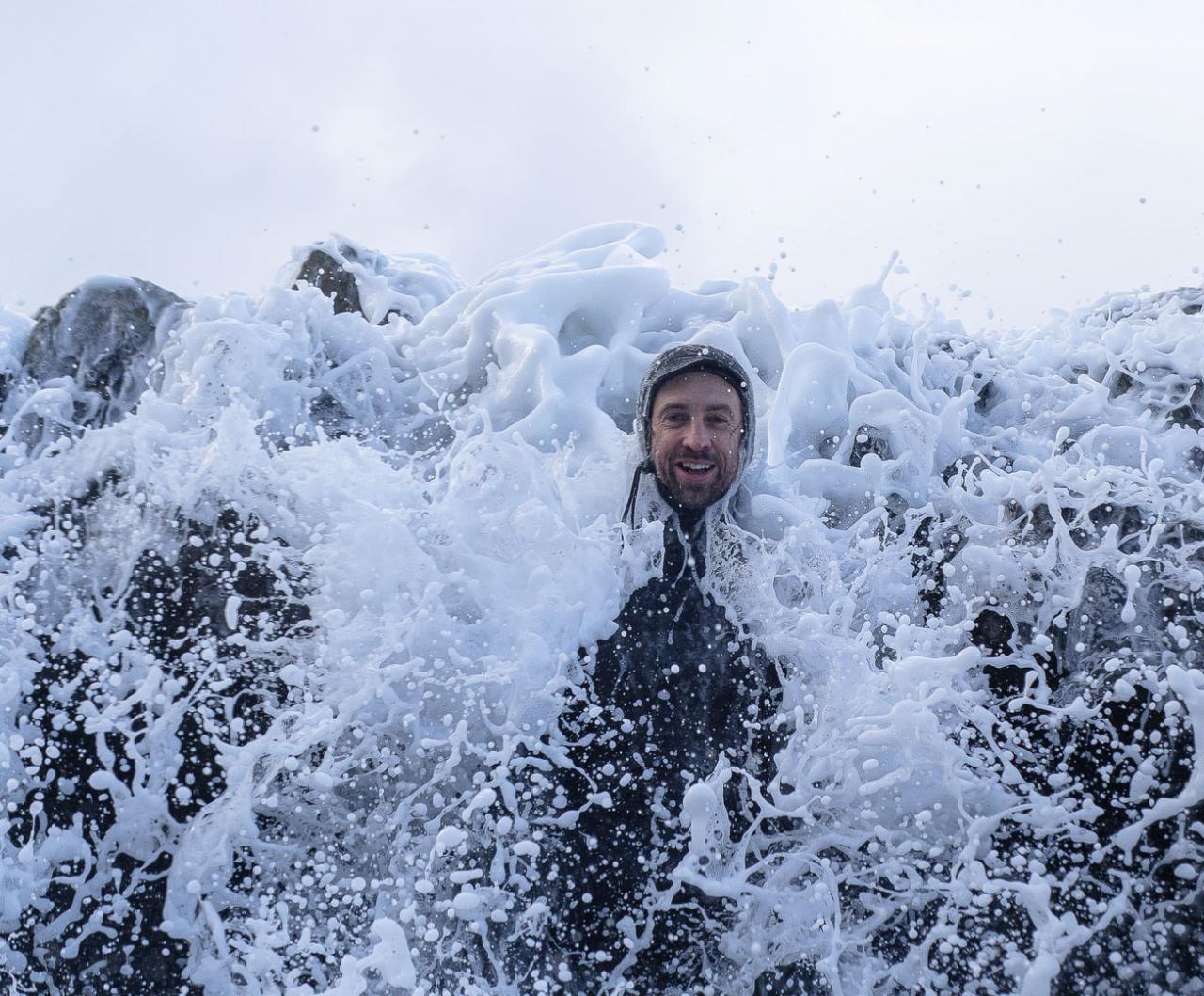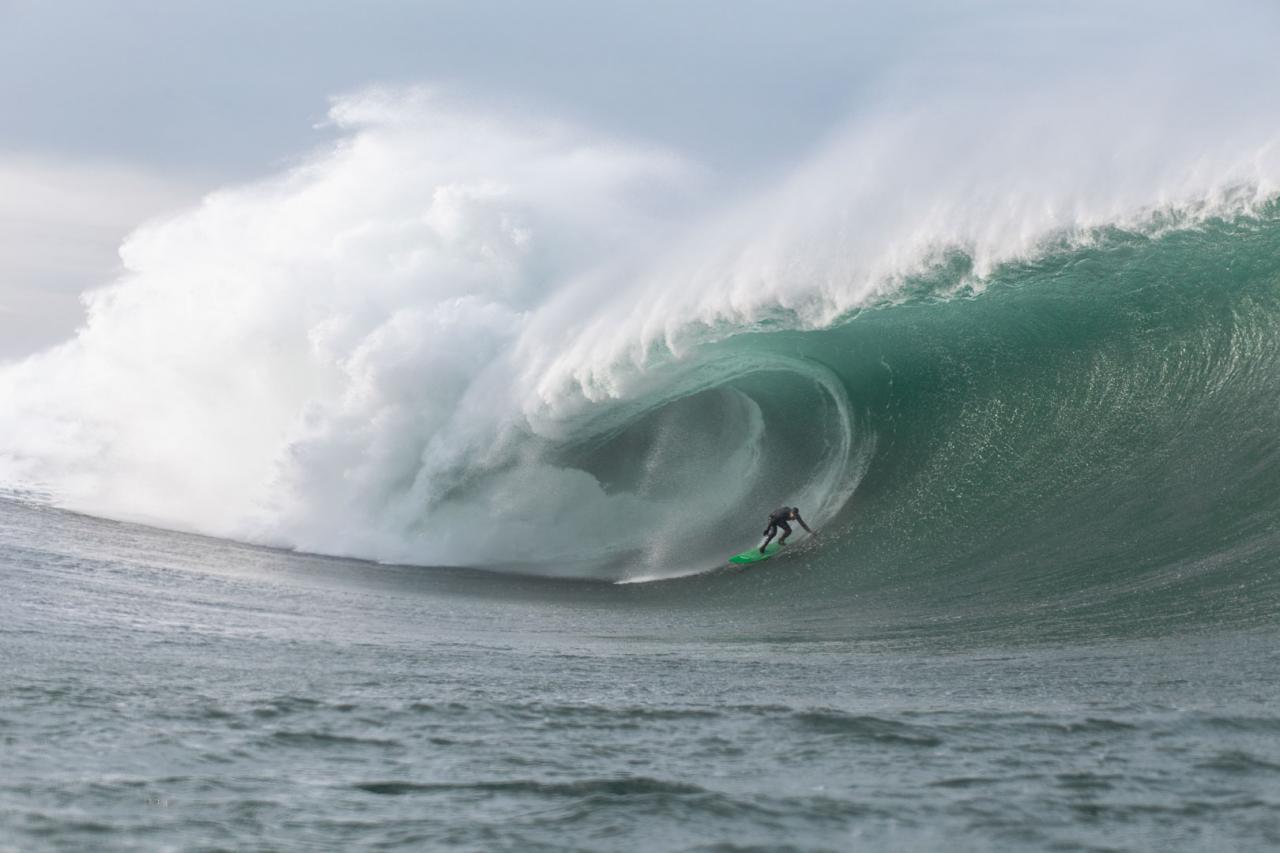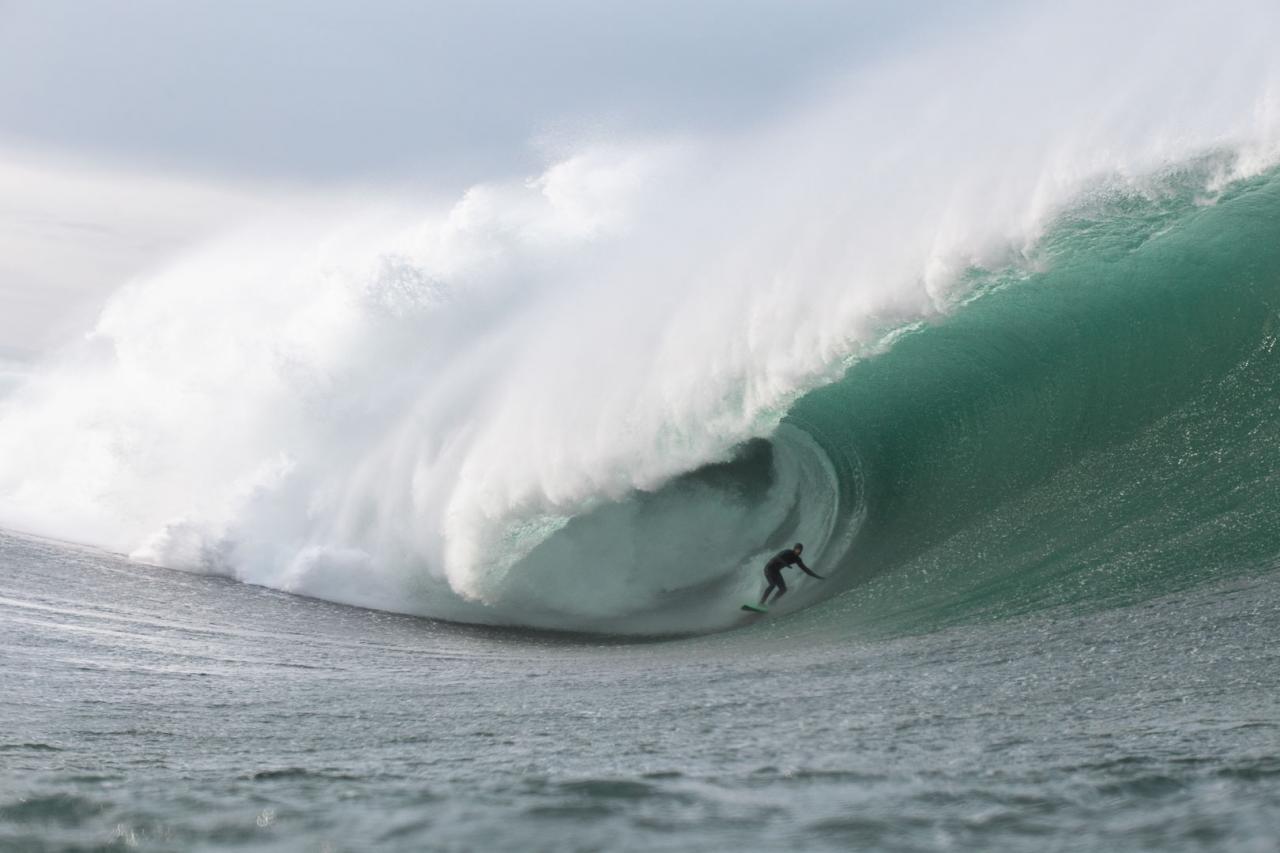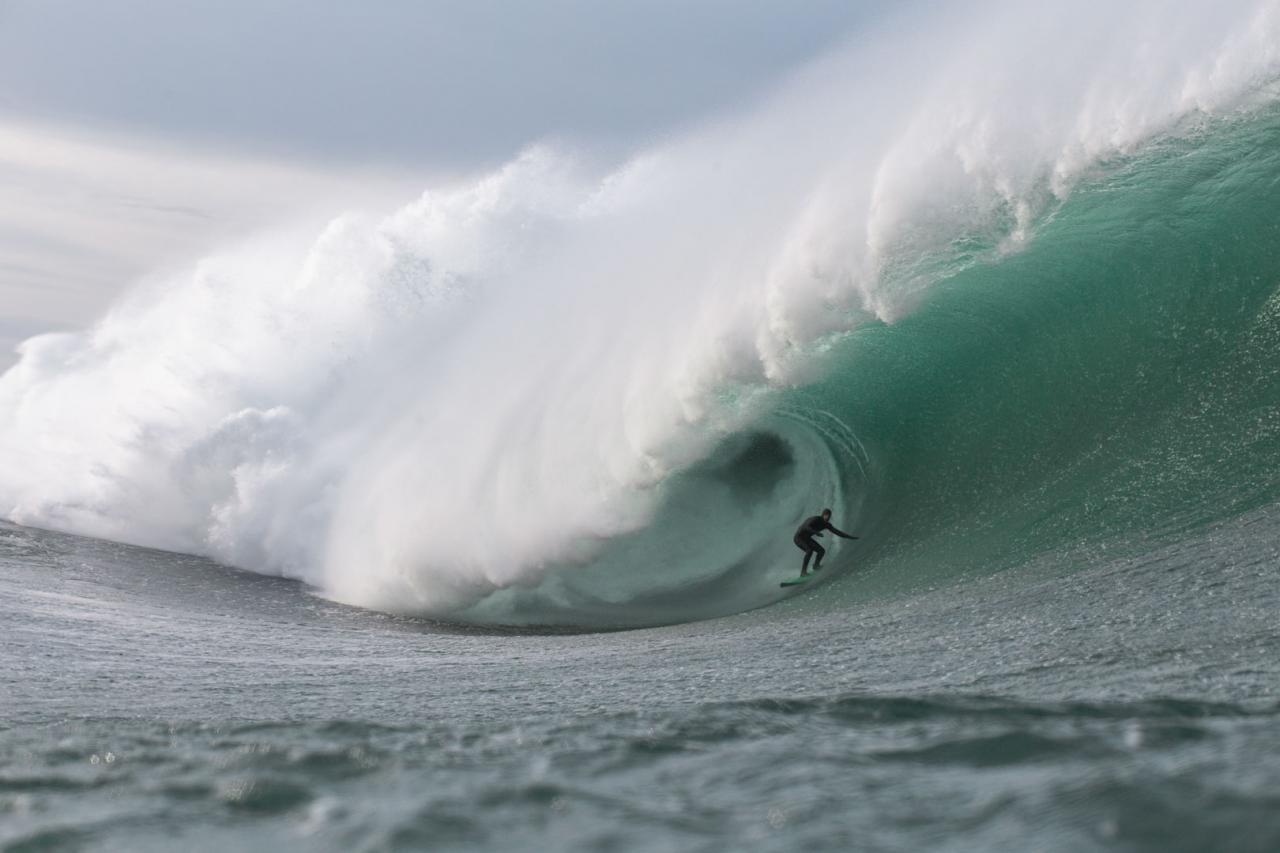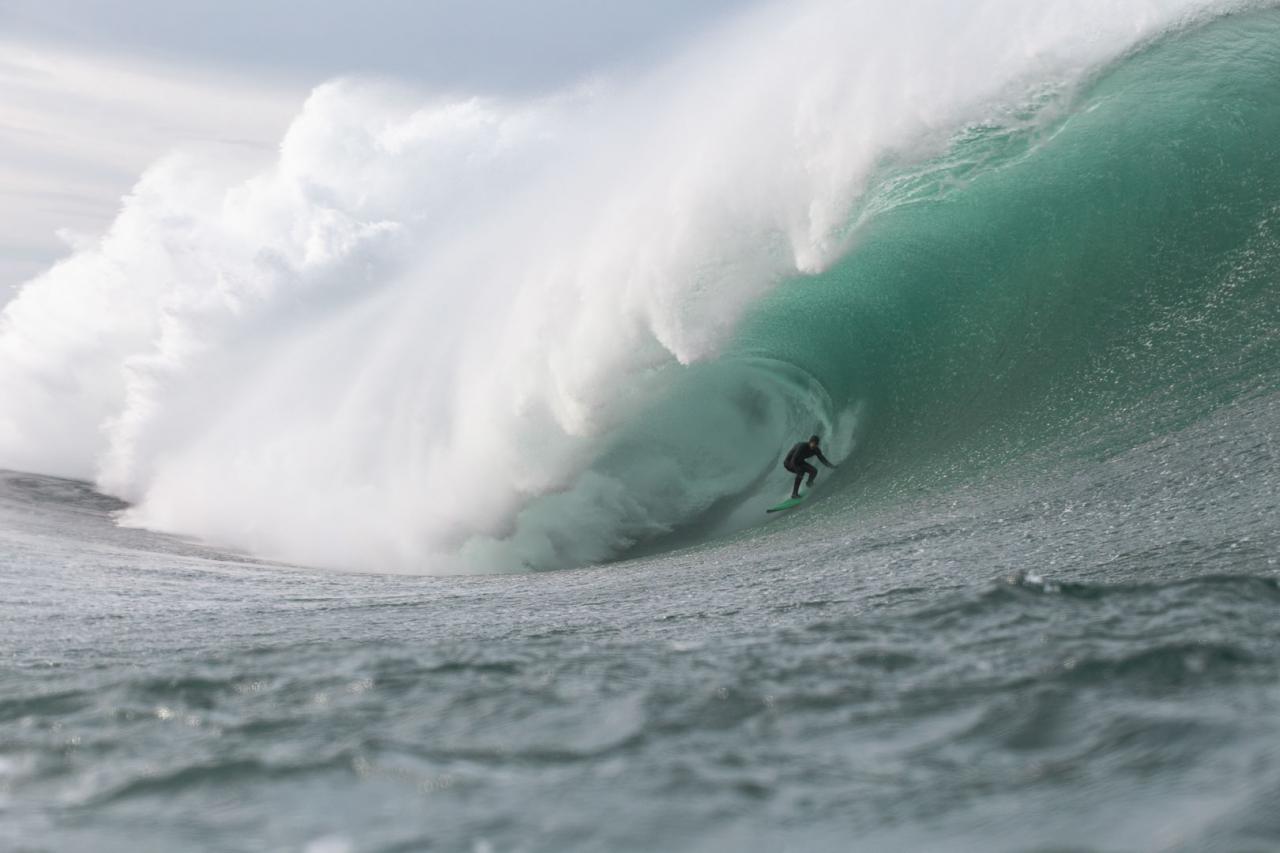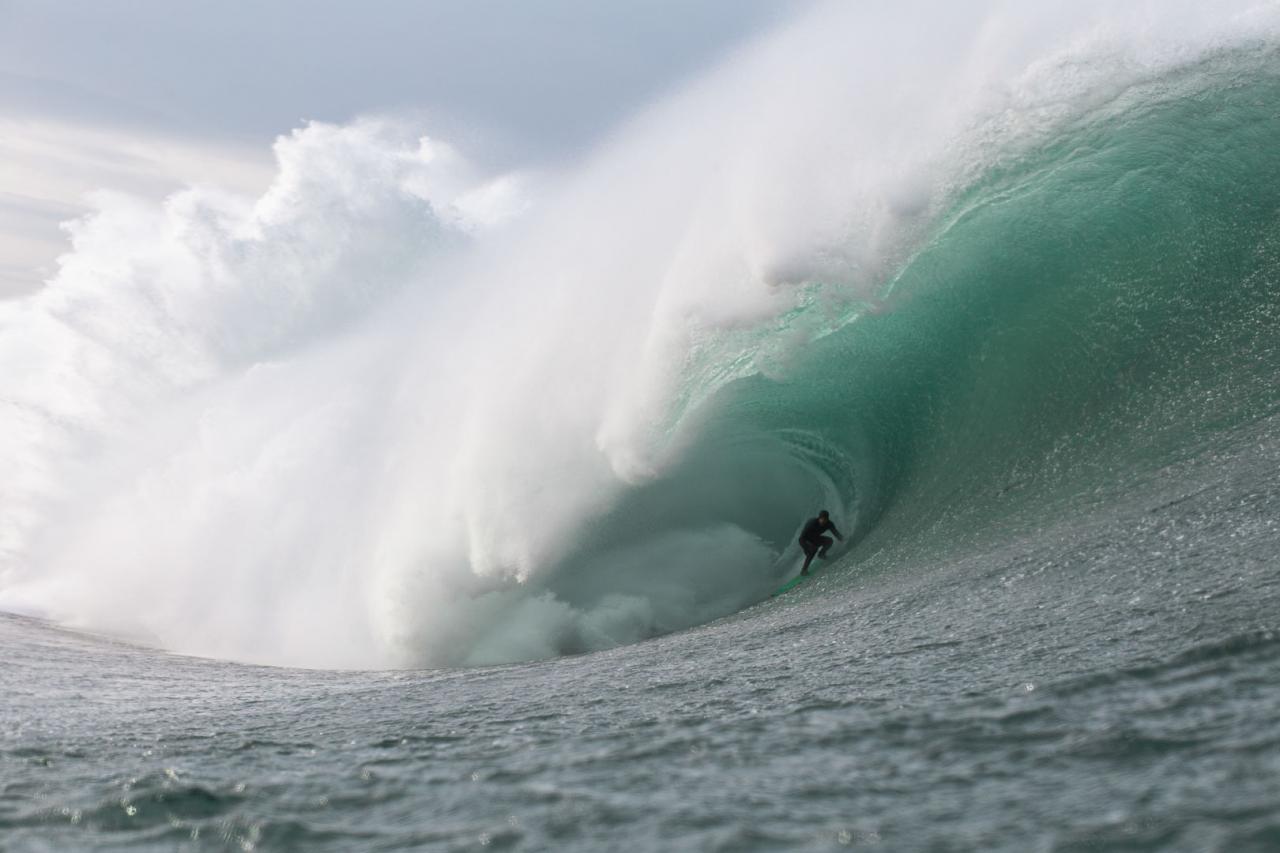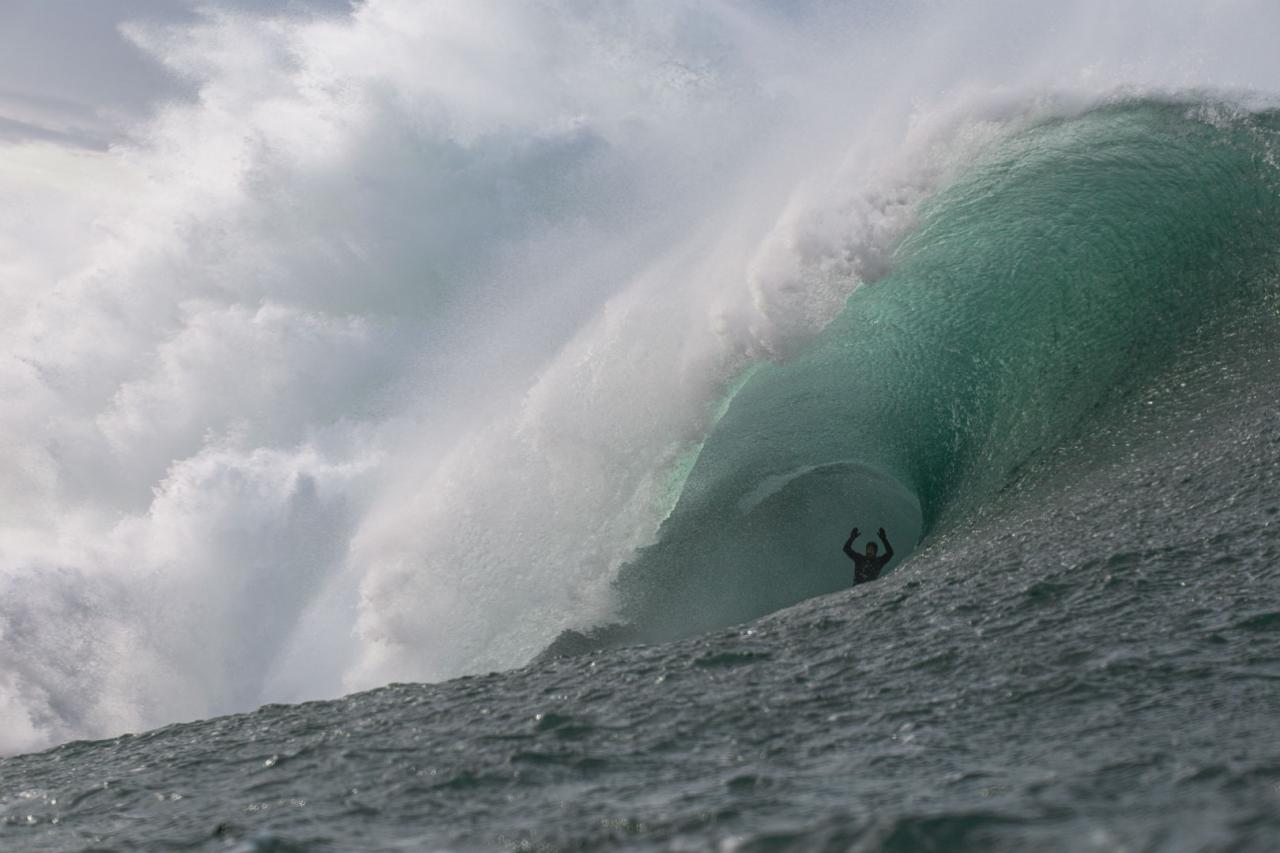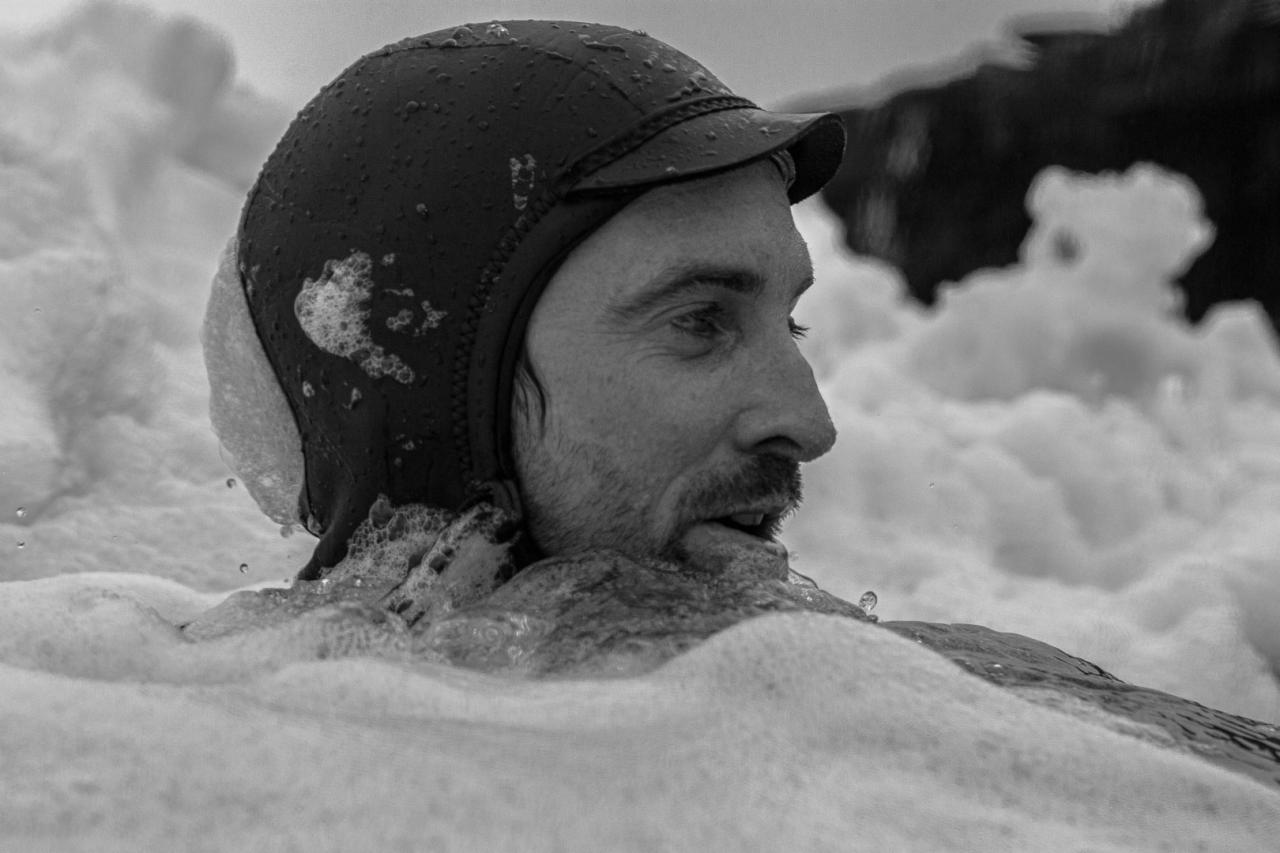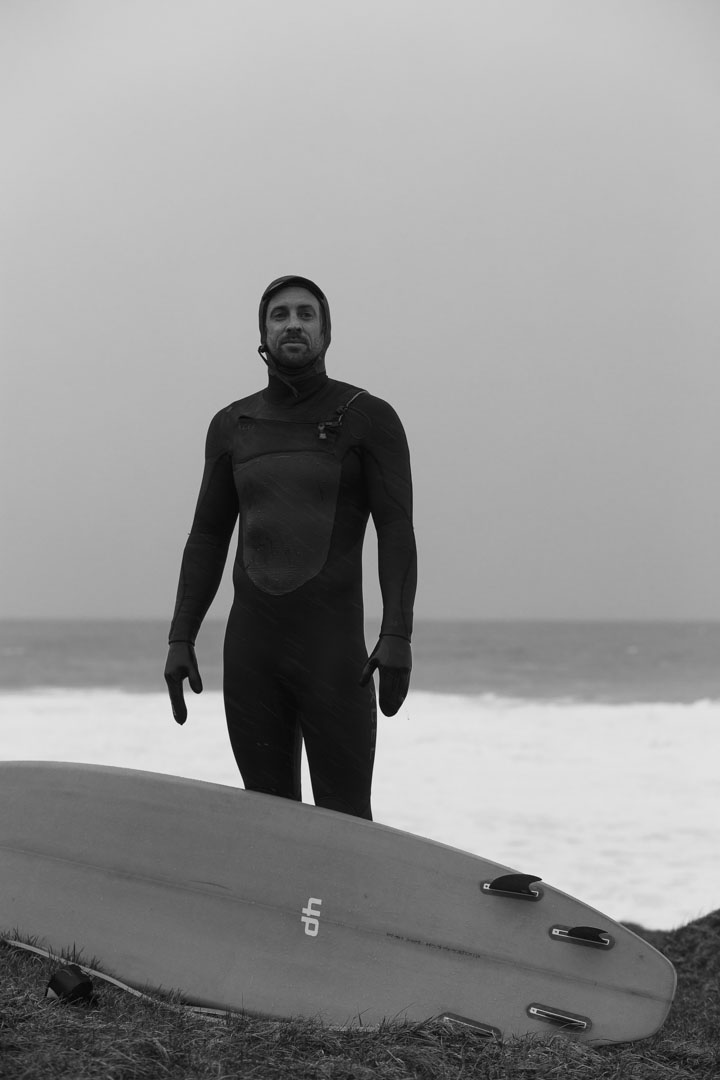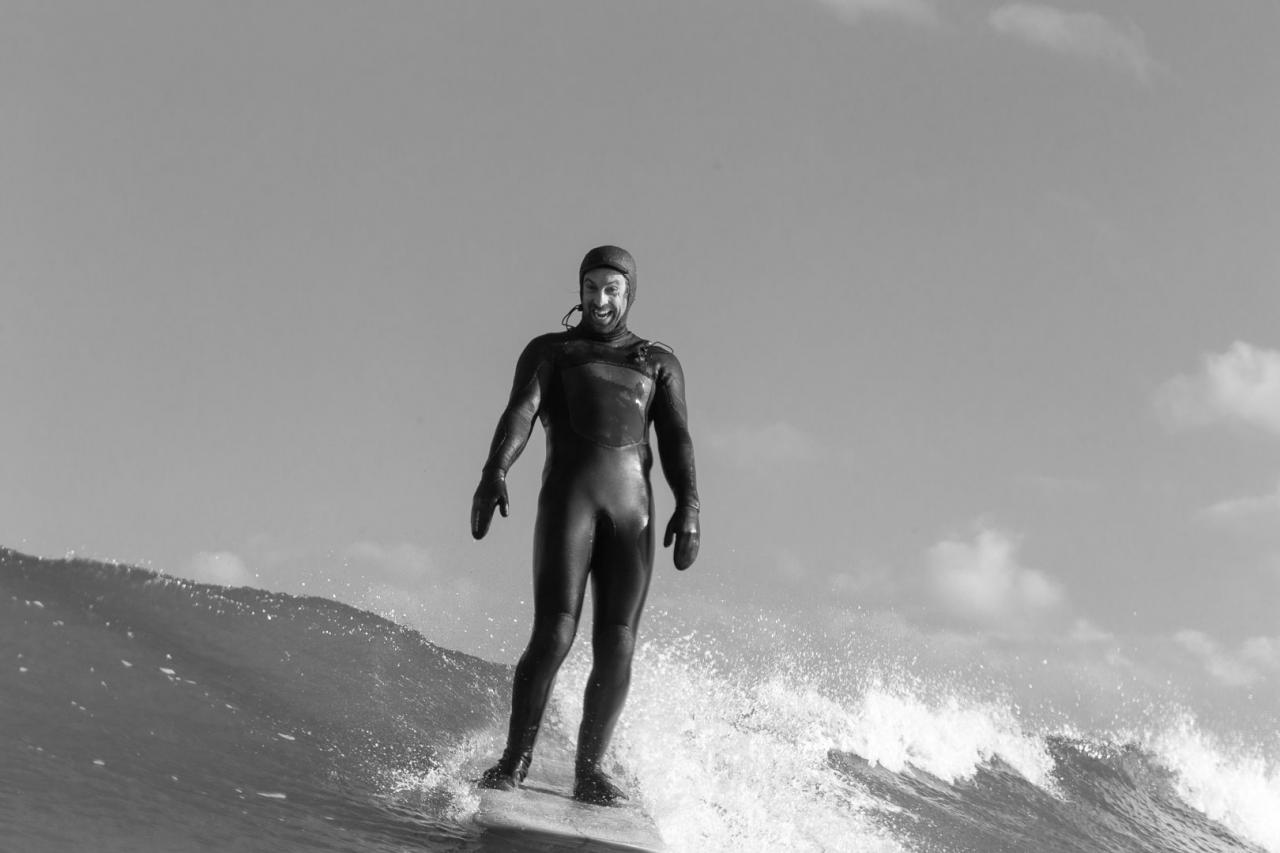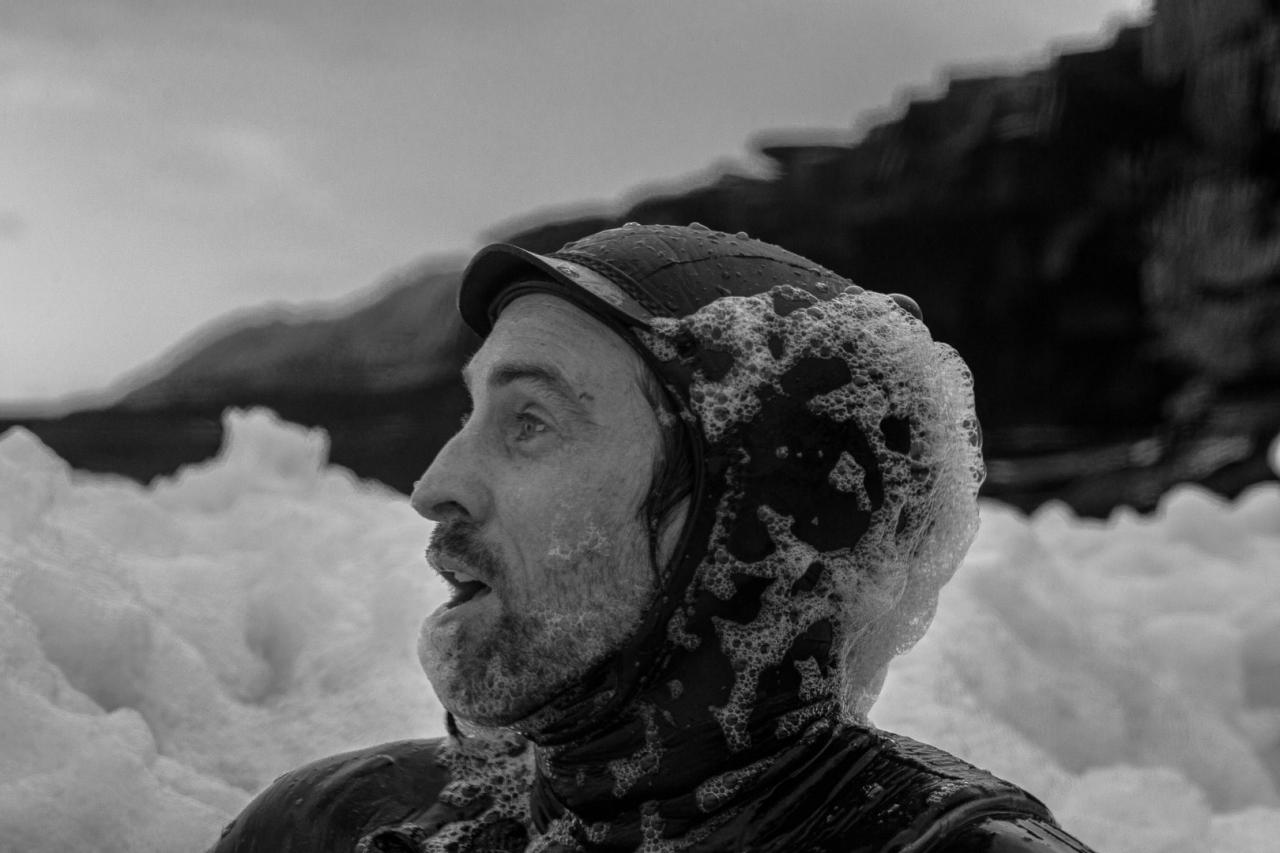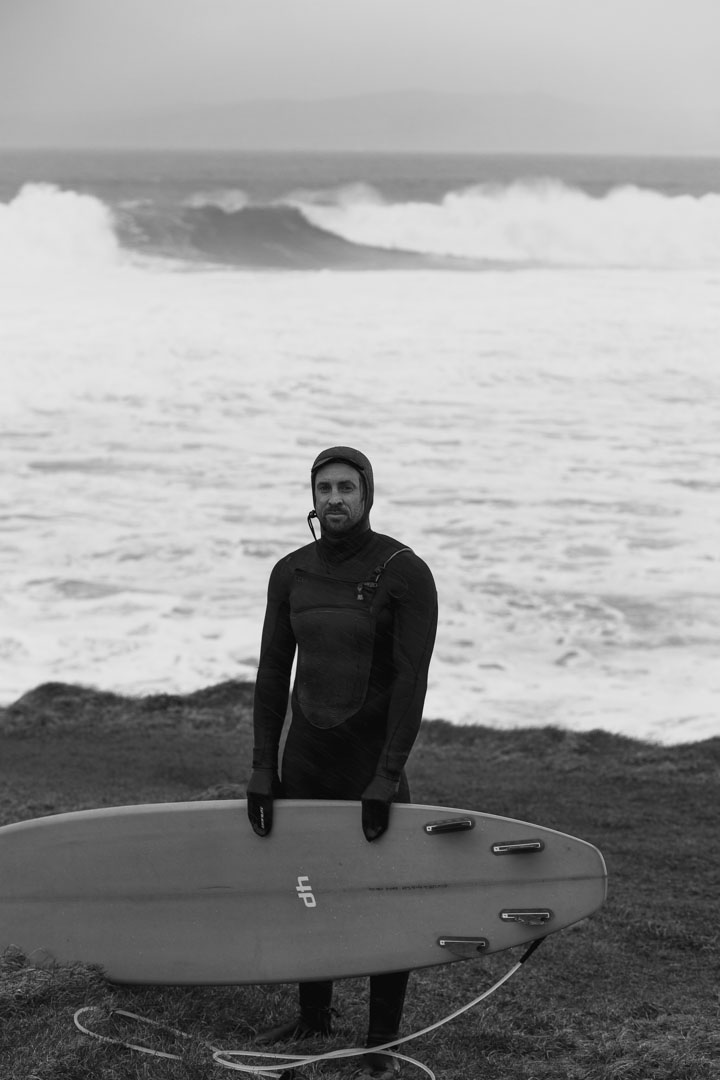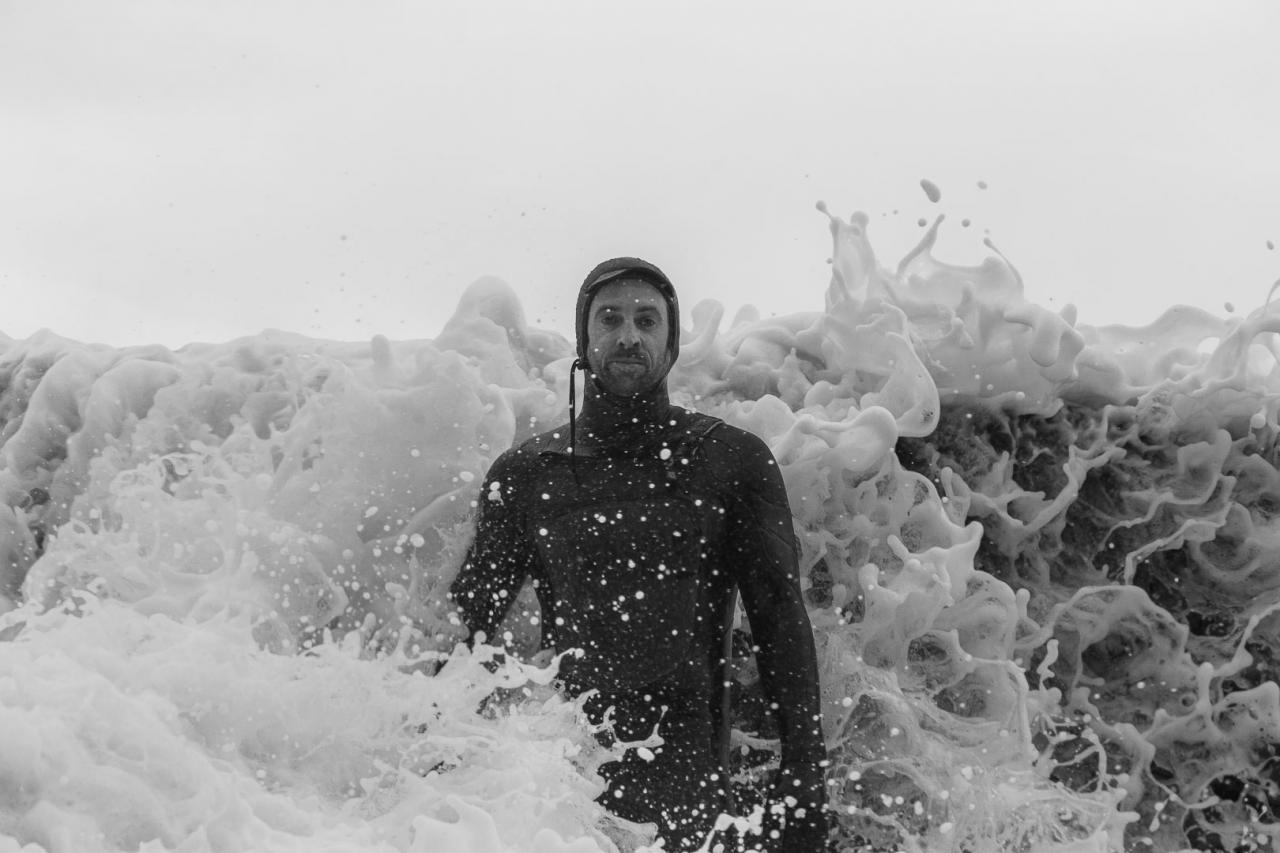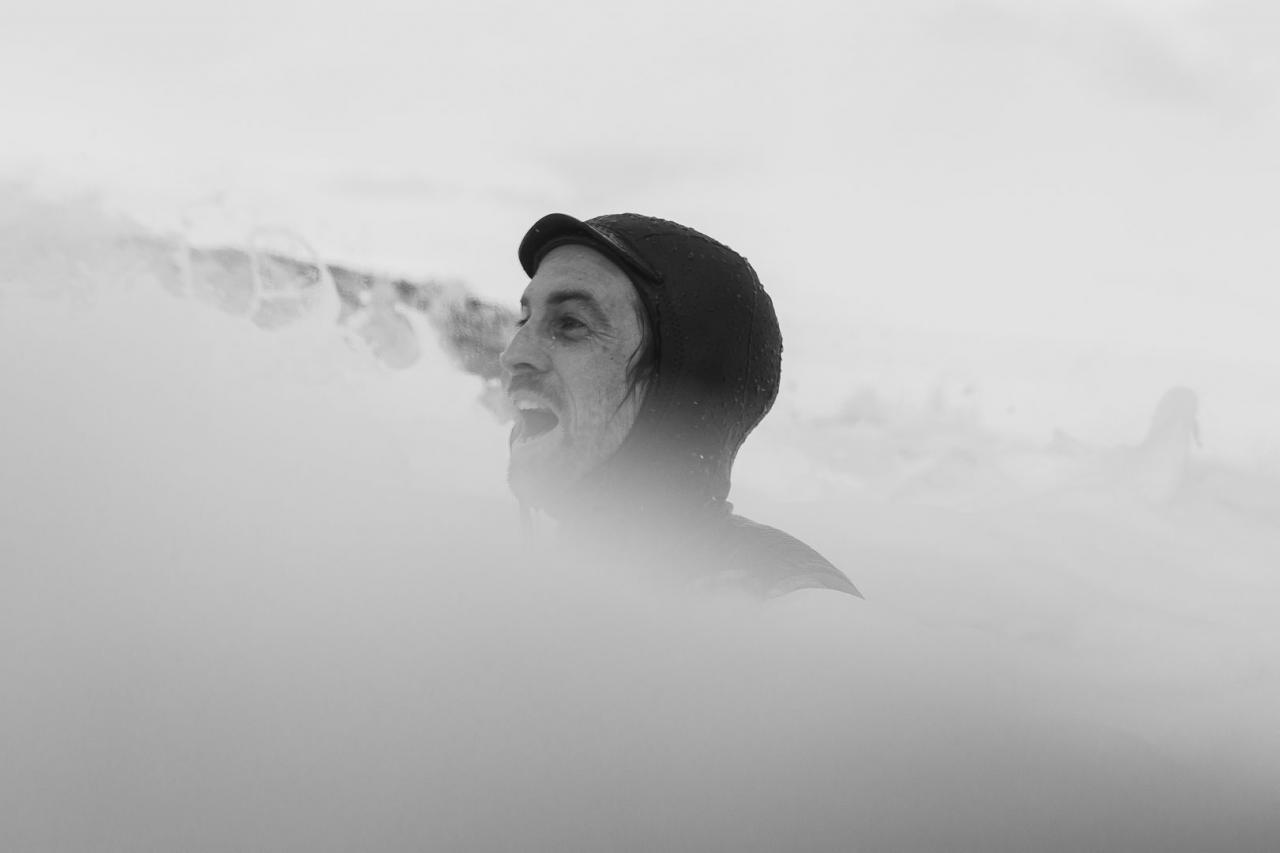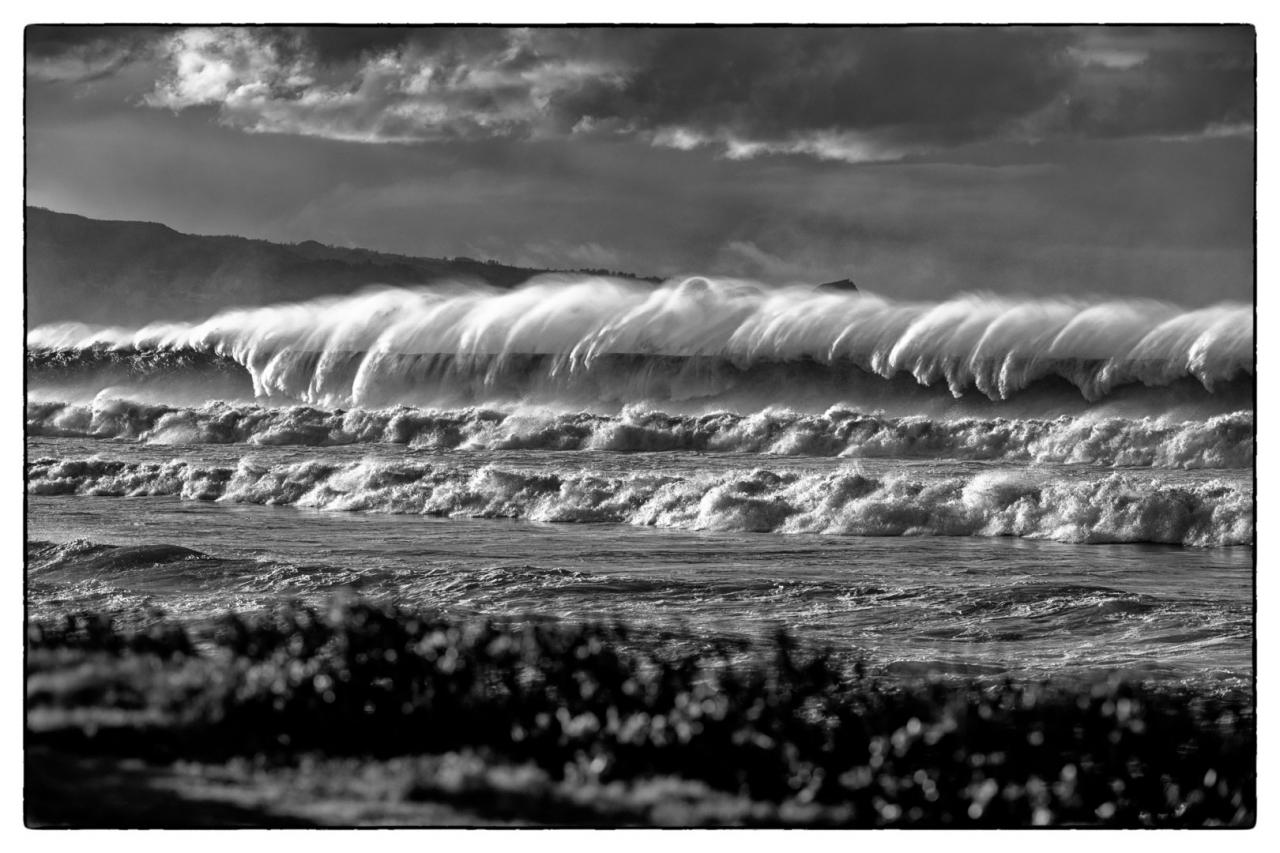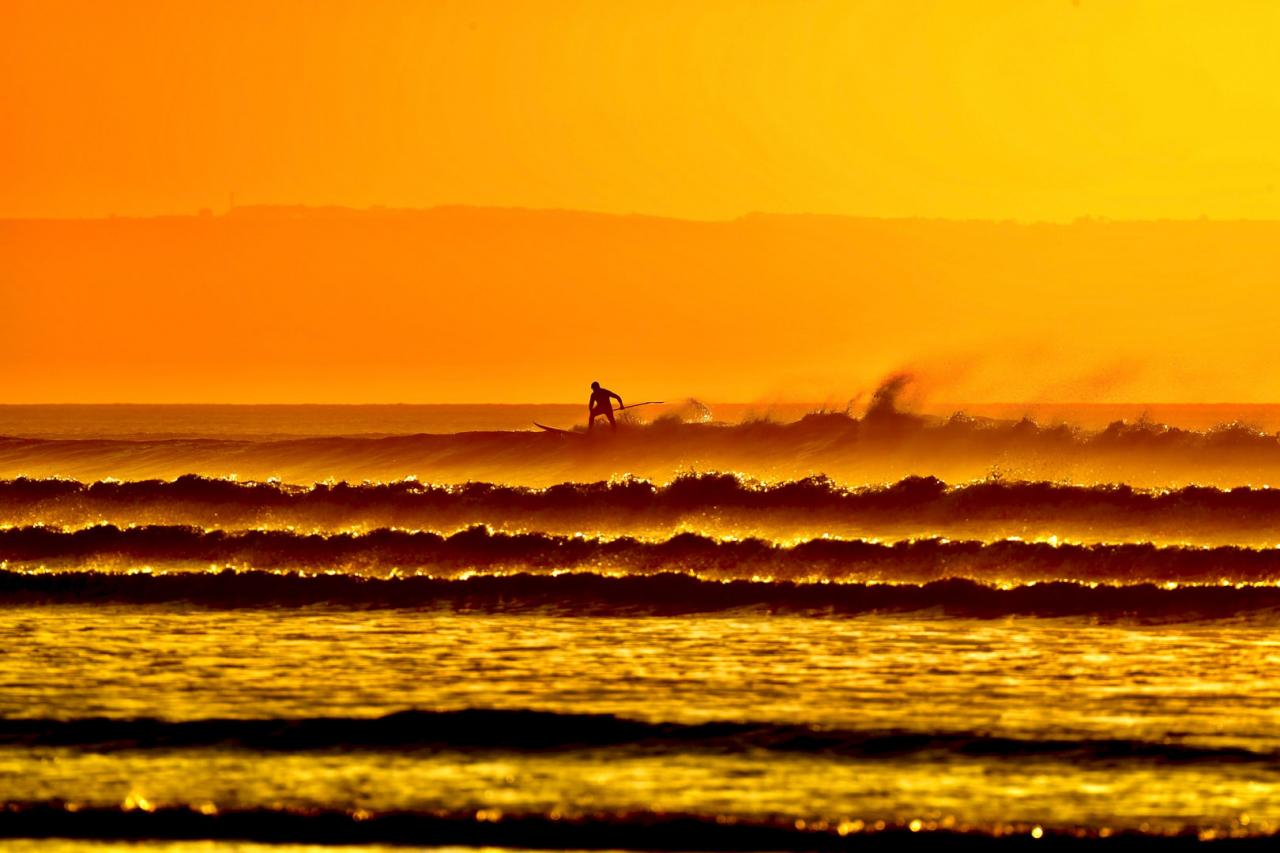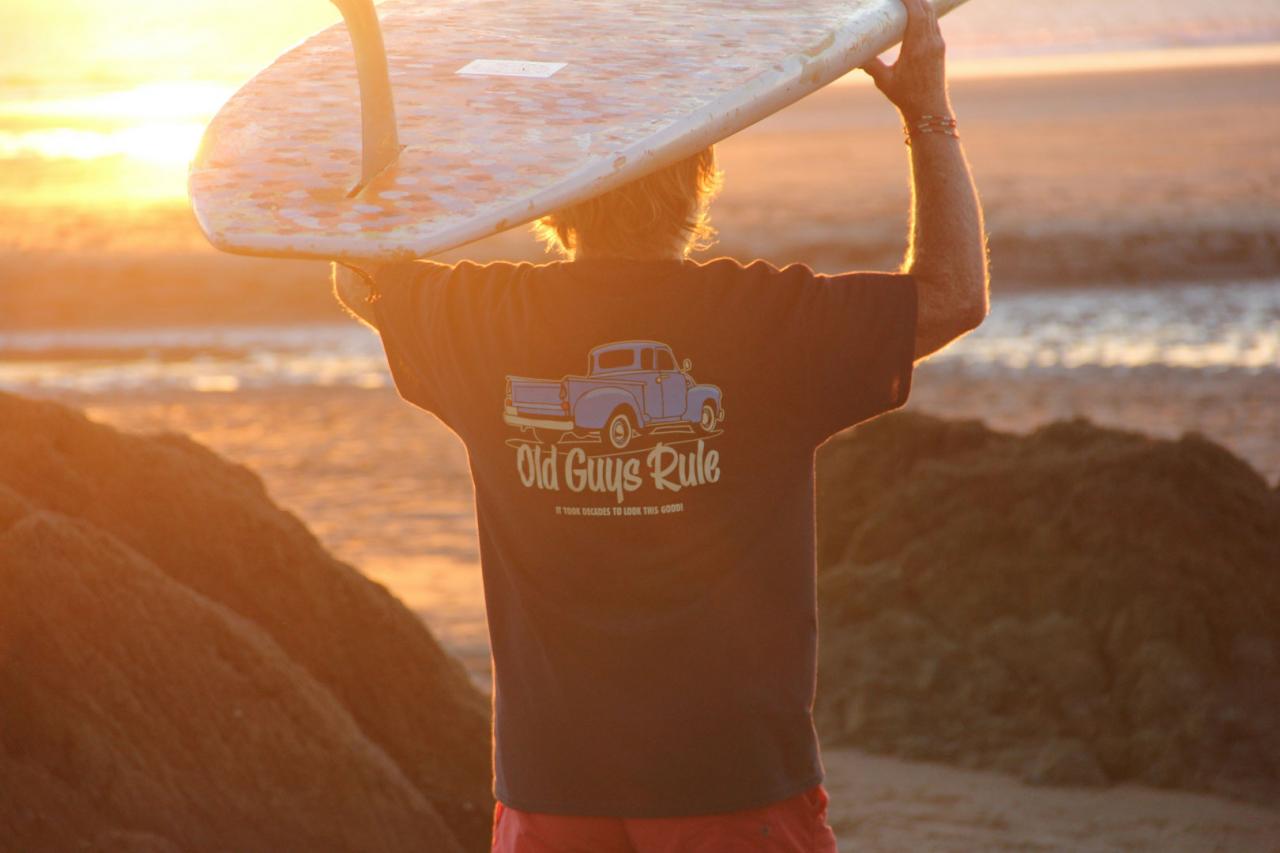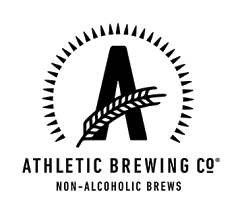I feel like I should understand Ryan Watts. I’d like to understand him like I’d like to know a martial art, or calligraphy. By not understanding Ryan Watts, I feel like I’m missing something. We are used to our surf heroes exchanging exposure for Likes and Followers. Then followed by sponsorships, signed contracts, and two posts a day to satisfy the influenced.
Ryan Watts is not on Instagram.
The only person in the world with photos of Ryan surfing on their wall is his mum.
Ryan asked me to spot him once. Highlining. I didn’t know what highlining was, much less what I had to do to spot him. I had my son with me who’s six and whose job it is to ask questions. As we came over the hill we saw a wire stretched between two ridges. Large loops of nylon strap hung down from the wire like giant sections of spider web.
“Is that the wire he’s going to walk across?”
“Yes,” I said, with confidence, as if I’d known all about highlining.
“Why?” he asked.
“What do you mean why?”
“Why does he do that?”
“Why does he highline?” I asked, I used the word like it’s a word I always use. “I’m going to guess because he likes it. Because it’s fun.”
“So, what happens if he falls off?”
We were going down the hill. I put the old pick-up into first gear and took my feet off the pedals. I wanted to go so slow. I often do this to reach the end of conversations with my son. I know as soon as I stop he will throw himself into whatever fray we arrive at and our conversation will be over.
“I think if he falls off in the middle he’s fine, he has a harness,” I say, “but if he falls off at the beginning or end he could hit the rocks and get really hurt or maybe killed.” The truck’s gearbox was whining as we reached the steepest part of the hill.
“Why are you going so slow?”
“I’m not,” I said, and sped up slightly.
“Are things more fun when you could die doing them?” He is six and he has experienced joy and pain and knows these things because of instinct or genetics, or maybe both.
“Generally yes.” I said. I had a big smile on my face. I hope my son carefully avoids being killed. And, at the same time, I hope that my son is not terrified of death or dying.
“Is Ryan scared?” My son asked me this without taking his eyes off the steel pegs that secured his highline. We were both spotting Ryan, taking shared responsibility in Ryan’s life as he balanced in the middle of the wire.
“I’m not sure,” I said. “I don’t understand Ryan all that much.”
“You’re a bad friend a little bit,” says Eryk.
Eryk moves like a fighter: fresh and snappy. He deals with life like a fighter. He shadow boxes during conversation. He receives his guests in his underpants in the kitchen.
As you would imagine of a world class wave rider who avoids exposure, Ryan is not a man comfortable talking about himself, but everybody opens up to Eryk. I often ask Eryk his take on people and things. Eryk is that kind of friend every writer needs, a rare combination of someone who talks a lot and always tells the truth.
“Little bit bad of a friend,” he continues, “always, you surf with him, always hanging out, but you don’t know anything about him. Little bit selfish maybe.”
“Friends sometimes don’t know much about each other,” I say.
“No,” Eryk says. A long “o” sound making it more final. “Friends know ‘bout friends.”
In his underpants, Eryk compression exhales as he shadowboxes. The punches and the clipped breathing continue during conversational pauses. Eryk tells the truth the way a good boxer hits you, stunning accuracy and power from unexpected directions. To Eryk, the truth is the truth the same way two plus two equals four. His truth, like math, is something without emotion.
“You should do something,” Eryk says. “If you did something you wouldn’t be a bad friend maybe.”
“I did something,” I protest, “I asked him some questions.”
“What questions?”
“I asked him what album he would bring if he was stuck on a desert island.”
“Pink Floyd,” Eryk says, “that live one, I know it. Earl’s Court,” Eryk could not help a gloating smile. He stops boxing his shadow for two full seconds and says, “The live one not the pre-recorded one,” then turns his attention back to his shadow, short little exhales. “Besides, would be shit on a desert island. You’d have a phone, shitty speaker, broken, if not broken then one album, maybe, before batteries gone.” His eyes are wide in shadowboxing concentration. “Like I said, you’re a bad friend, little bit. I’m good, little bit.”
Eryk dodges his own shadow’s punches in his kitchen in his underwear and t-shirt while we’re talking about Ryan Watts.
“What if you could recharge the phone?”
“If you could charge your phone, how could you be alone on a desert island?” Eryk runs through his one two three four combos while I think about this. “That makes no sense,” he says, finally.
“I asked him who his favorite rugby team is…”
Eryk scoffs. A shadowbox scoff with two quick exhales. “Ryan did a Haka on a bar top in front of us and you ask him what his favorite Rugby team is? You’re still a bad friend, a little bit.
“So what should I do?”
“You have to ask him about his dad,” Eryk says.
It is not easy to ask someone uncomfortable talking about themselves to talk about their dad. But I did. I want to be a good friend, little bit, instead of a little bit bad. I ask him over coffee about his dad, who played professional rugby for the All Blacks, the most winning team in all of professional rugby. Ryan is wearing thrift store boots, corduroy pants, and a cardigan he knitted himself over a clean white t-shirt. His long hair, brushed, flows down his shoulders like Legolas from Lord of the Rings. He does not answer any questions about his dad. If people were to know things about him, he wants them to know that he is a highliner, that he likes surfing weird boards, that he likes to knit his own clothes, that he likes longboarding small waves to escape the crowds, and that he is not a hipster.
I get a voice message later from Ryan that is one minute and four seconds long. The gulps give away his discomfort, and in a slightly rushed stream of consciousness monologue, gives me a brief summary of how, with his mum’s influence, not his dad’s, he came to be the humble world-class wave rider that he is.
“Just a bit more back story on my parents for ya,” says his message. “The best wave where I’m from is about 30 minutes from my house, it’s a right-hand point break. The heavy locals there are a couple really big Maori boys, proper, proper units. But… they were all rugby players… so… Ya know?…. I was straight in with them because of my dad. I was actually, or unfortunately, in G-Land for a really big swell. It was unfortunate because everyone else in the world was there. And even these Hawaiians, they were intimidated by these guys. Pretty ironic, ya know? Because the Hawaiians were some of the heaviest surfers in the world. And they were intimidated by these Maori guys who I grew up with. But… my mum was the real beach person. She was, ya know… that token crazy lady that swims all winter without wetsuits, when no one else does. This was before sea swimming was, cold water swimming was, ya know, cool and good for ya. She was that one that always did it. She was that lady, on the beach every day.”
And, one minute and four seconds later, I feel more like I understand Ryan Watts. I feel more like a good friend, and less like a bad one, if only a little bit.

